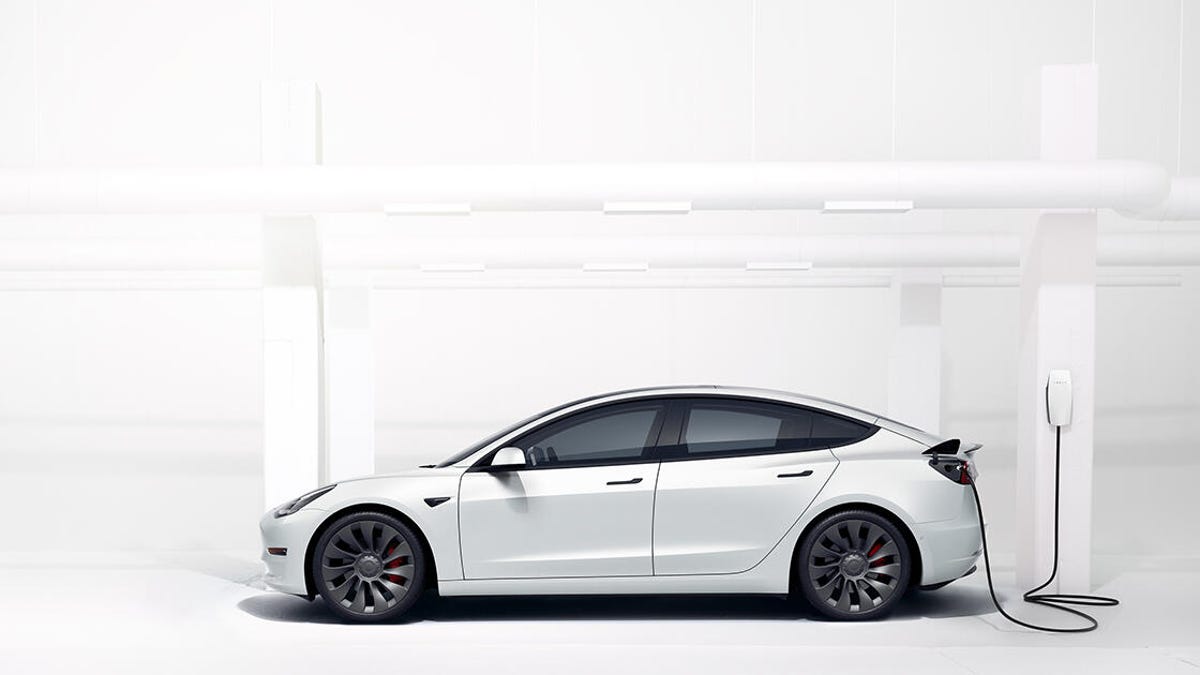Close to 9 months now with the Tesla, here are some funny conversations and musings from my wife (It's her car) that made me smile and laugh and wonder if these are things that other couples have experienced going abruptly from ICE to EV.
"What's wrong? You're kind of quiet"
"I drove the 4Runner today"
"When you went shopping?"
"Yes"
So? What's wrong?"
"I don't know. I felt guilty, like I was ruining the environment"
---
"I've got a bunch of errands to run today"
"I forgot to plug the car in last night, let me add some charge"
*looking at her phone app*, "It's at 26%, that's PLENTY! I'm only going to 4 or 5 places"
(When we first got the car, if it wasn't at least 85% charge she was CERTAIN she would get stranded LoL!)
---
*While I'm driving*
"You're not very good at regenerative braking. You need to practice more"
---
"Loud sports cars don't scare me anymore"
---
*a friend in the car*
"The roof is glass. Aren't you afraid of what will happen if it rolls over?"
"It has a much lower chance of rolling over than almost any other car because the batteries are on the bottom and they're heavy. It's like a weeble that wobbles but doesn't fall down"
"oh"
"I'm actually more afraid of a piano on a crane falling on the car"
---
*she's driving*
"I need my purse"
"I'll get it..."
"No, I've got it..."
*Puts the Tesla into ACC and turns around to get purse out of the back seat*
---
*walking to the car from the grocery store, suddenly holding her Apple Watch up*
"Hey Siri, open the trunk"
*Trunk opens as we walk up*
"When did you set that up?!"
"It's an app, I set it up a long time ago, why?"
---
"Another woman in book club just got a Tesla"
"That's great"
"It's only a standard range though, no one else has a Performance" (I spied a hint of bravado in her voice, LoL!)
---
"It takes longer to charge from 85 to 90% than it does to charge from 20 to 80%"
"I told you that a LONG time ago!"
"Yes, but I understand it now so now it's right"
"?"
So many more LoL!

(Admin note: Image added for the Blog)
"What's wrong? You're kind of quiet"
"I drove the 4Runner today"
"When you went shopping?"
"Yes"
So? What's wrong?"
"I don't know. I felt guilty, like I was ruining the environment"
---
"I've got a bunch of errands to run today"
"I forgot to plug the car in last night, let me add some charge"
*looking at her phone app*, "It's at 26%, that's PLENTY! I'm only going to 4 or 5 places"
(When we first got the car, if it wasn't at least 85% charge she was CERTAIN she would get stranded LoL!)
---
*While I'm driving*
"You're not very good at regenerative braking. You need to practice more"
---
"Loud sports cars don't scare me anymore"
---
*a friend in the car*
"The roof is glass. Aren't you afraid of what will happen if it rolls over?"
"It has a much lower chance of rolling over than almost any other car because the batteries are on the bottom and they're heavy. It's like a weeble that wobbles but doesn't fall down"
"oh"
"I'm actually more afraid of a piano on a crane falling on the car"
---
*she's driving*
"I need my purse"
"I'll get it..."
"No, I've got it..."
*Puts the Tesla into ACC and turns around to get purse out of the back seat*
---
*walking to the car from the grocery store, suddenly holding her Apple Watch up*
"Hey Siri, open the trunk"
*Trunk opens as we walk up*
"When did you set that up?!"
"It's an app, I set it up a long time ago, why?"
---
"Another woman in book club just got a Tesla"
"That's great"
"It's only a standard range though, no one else has a Performance" (I spied a hint of bravado in her voice, LoL!)
---
"It takes longer to charge from 85 to 90% than it does to charge from 20 to 80%"
"I told you that a LONG time ago!"
"Yes, but I understand it now so now it's right"
"?"
So many more LoL!
(Admin note: Image added for the Blog)




